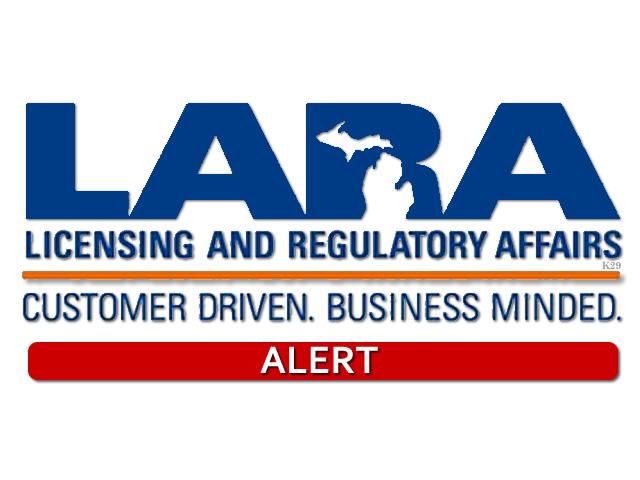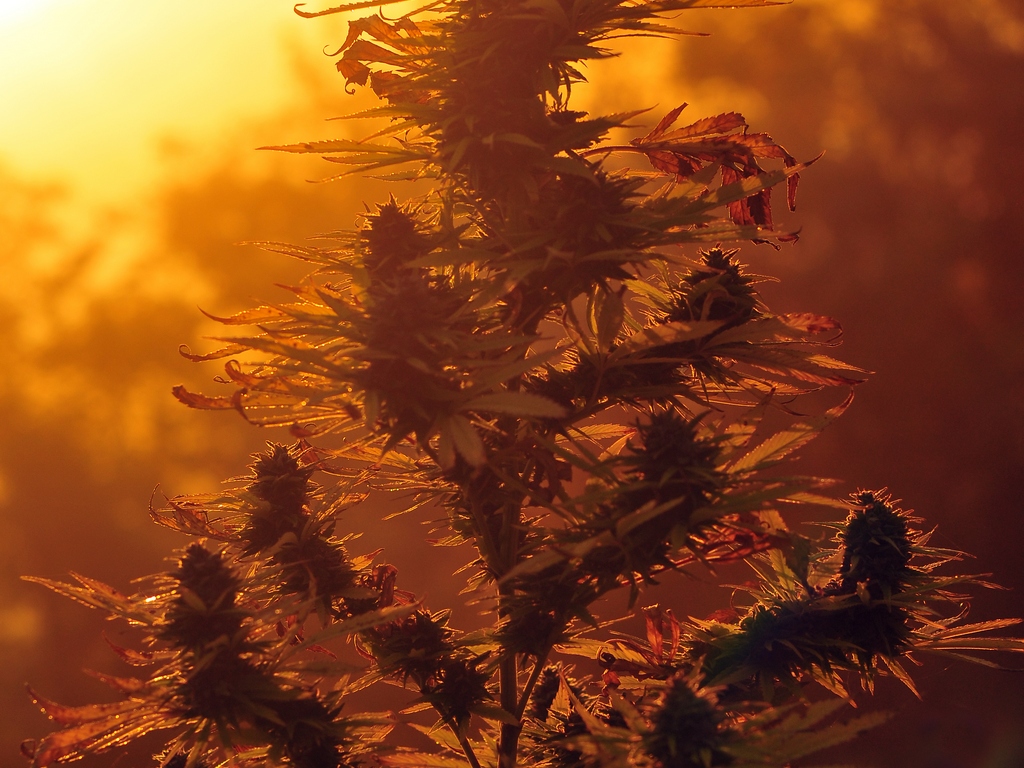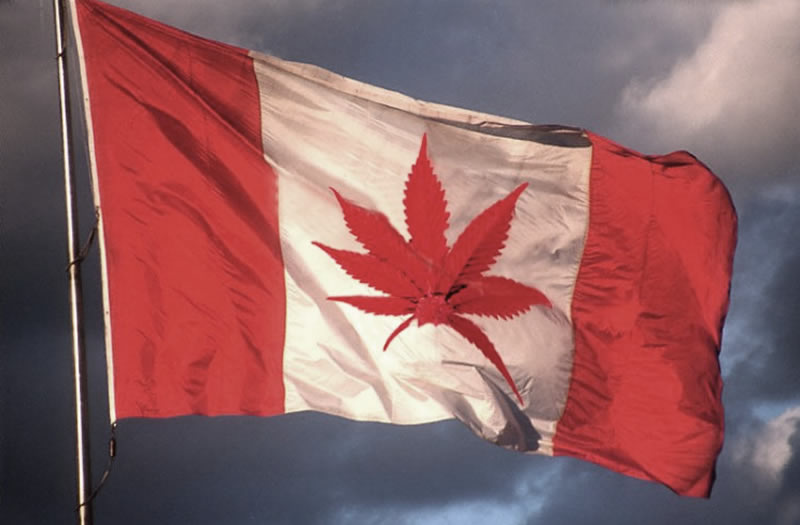
Jan 17, 2019 | Blog, News
Medical Marijuana Patients Protected Under LARA Recommendation Regarding Temporary Operating Facilities
January 15, 2019 – The Dept. of Licensing and Regulatory Affairs (LARA) will recommend tomorrow that the Medical Marihuana Licensing Board (MMLB) adopt a resolution which will help maintain patient access to medical marijuana.
LARA’s recommendation will allow temporarily operating facilities to reopen without it being an impediment to future licensure and will also allow licensed facilities to source product from caregivers without it resulting in disciplinary action.
“We have heard from Michiganders closely affected by the ongoing transition to licensed marijuana facilities,” said Gov. Gretchen Whitmer.
“It is important that we ensure that patients have access to their medicine while the medical marijuana industry continues to develop.”
“This recommendation will extend the temporary operation of facilities and allow licensed businesses to remain competitive during this transition period,” said LARA Director Orlene Hawks.
LARA recommends that the MMLB adopt a resolution that makes it clear that disciplinary action will not be taken against an applicant in the following circumstances:
Have a Law Firm represent your interests to get your state license to operate your Cannabis Business.
Contact Komorn Law… 800-656-3557.
Temporarily Operating Facilities (through March 31, 2019)
- The applicant’s proposed facility is within a municipality that had an authorizing ordinance in place by December 15, 2017.
- The applicant applied for a license no later than February 15, 2018.
- The applicant notifies the Department within one business day of becoming aware of any adverse reaction to a marijuana product sold or transferred.
Licensed Provisioning Centers (through March 31, 2019)
The Board will not take disciplinary action against a licensed provisioning center for purchasing marijuana products from either a registered primary caregiver or from a temporarily operating facility, as long as the licensee does all the following:
- Obtain signed patient consent prior to selling any marijuana products that have not been tested in full compliance with the law and administrative rules.
- Enter all inventory into the statewide monitoring system immediately upon receipt from a caregiver or from a temporarily operating facility.
- Verify and confirm – before any sale or transfer – with government issued photo identification and the statewide monitoring system that the customer holds a valid registry identification card.
- Enter all sales in the statewide monitoring system and determine sales will not exceed daily purchasing limits.
- Notify LARA within one business day of becoming aware of any adverse reaction to a marijuana product sold or transferred.
Licensed Growers or Processors (through March 31, 2019)
The Board will not take disciplinary action against a licensed grower or processor for purchasing marijuana products from either a registered primary caregiver or from a temporarily operating facility, as long as the licensee does all the following:
- Enter all marijuana products as inventory into the statewide monitoring system immediately upon receipt.
- Tag or package all inventory that has been identified in the statewide monitoring system.
- Only transfer marijuana products that have been tested in full compliance with the law and administrative rules.
- Notify LARA within one business day of becoming aware of any adverse reaction to a marijuana product sold or transferred.
Updated Consent Form for the Sale or Transfer of Untested Marihuana Product

Jan 14, 2019 | Blog, News
Michigan regulators are recalling marijuana products sold at dispensaries in Detroit and Kalamazoo after failing lab tests for mold and bacteria.
The products were sold at the Green Mile on Eight Mile Road in Detroit and Compassionate Care by Design in Kalamazoo.
Additionally, regulators announced late Friday the recall of marijuana sold in Lansing because of chemical and bacterial contamination.
The Department of Licensing and Regulatory Affairs (LARA) issued two safety and health advisoriesfor the items sold between Dec. 18 and Jan. 3 at the Green Mile in Detroit and Dec. 12 and 29 at Compassionate Care by Design in Kalamazoo.
Lost Your License Because You Are A Medical Marijuana Patient?
Contact Komorn Law Immediately to secure your rights… 800-656-3557.
Products recalled at the Detroit dispensary include Gelato, Superman OG, Mimosa, and Girl Scout Cookies. The Gelato and Girl Scout Cookies items failed the lab testing for yeast and mold, while Superman failed for chemical residue. Bile-tolerant gram-negative bacteria and coliforms were the cause for the recall of the Mimosa strain.
Items recalled at the Kalamazoo dispensary include Critical Cali, GMO, Silver Haze, Girl Scout Cookies, Critical Kush, Blueberry, Skunk #1, Chunk D, Amnesia Lemon Kush, Purple Punch, and Special Kush.
Read the rest of the story here

Jan 14, 2019 | Blog, Hemp, News
From the minute Michigan voters approved legal cannabis, communities around the state began to grapple with a pressing question:
How can we shut it down?
You might not think that’d be the first priority for elected officials in a state whose voters approved the sale and use of recreational marijuana last November by a solid 56-44 percent margin.
Yet when it comes to marijuana, many folks are of two minds: Using or buying it shouldn’t be a crime, but … do you really want a weed shop on your street?
Metro Detroit communities Allen Park, Pontiac, Livonia, Northville, Birmingham, Troy and Grosse Pointe City are among the more than 60 cities and townships around the state that voted to opt out of the marijuana business since recreational use was approved last year.
It’s a pattern that mirrors the aftermath of a successful 2008 ballot proposal that legalized medical marijuana.
Because Detroit was slow to promulgate its own regulations, some 250 medical marijuana dispensaries opened in the city. A 2015 survey by Detroit data firm Loveland found that medical marijuana dispensaries were clustered along the city’s suburban borders, and its major thoroughfares, presumably in proximity to a suburban market that wanted access to medical marijuana without housing the dispensaries themselves.
Detroit struggled to get a handle on the proliferation of medical marijuana dispensaries within its limits. Detroit’s City Council approved an ordinance to license and regulate those businesses in 2017, but a voter referendum that year complicated the process with a lengthy court battle.
Read the rest of the story here

Jan 12, 2019 | Blog, News
CBD oil regulated as hemp, not marijuana
LANSING, Mich. Jan 11, 2019 – A new law will prevent cannabidiol — more commonly referred to as CBD oil — from being regulated under Michigan’s medical marijuana rules.
The legislation CBD – ENROLLED HOUSE BILL No. 6331 sponsored by state Rep. Steve Johnson, R-Wayland, was passed by late last year and signed into law on New Year’s Eve.
It defines CBD oil as a derivative of hemp, not marijuana. That means people who use CBD oil to treat things like seizures, pain and depression won’t have to get a medical marijuana card.
Read The Rest Of The Story Here

Jan 12, 2019 | Blog, News
Toronto man loses his driver’s license after a medical doctor said his daily cannabis use would affect his ability to safely operate a motor vehicle.
A Toronto man lost his Ontario driver’s licence after admitting to a doctor he smokes marijuana on a daily basis.
The man, age 53, provided part of his medical file and other information to Global News for examination but asked not to be publicly identified out of concern for his employment.
Lost Your License Because You Are A Medical Marijuana Patient?
Contact Komorn Law Immediately to secure your rights… 800-656-3557.
Last October, the man was referred to Dr. Peter Phua, a medical doctor who works in a psychotherapy clinic.
He was seeking help with anxiety and claustrophobia, an extreme fear of confined places.
The man says he was honest and upfront about his lifetime use of marijuana, which by mid-month was legally obtainable in Canada. He said he has always been truthful with physicians.
READ MORE: Police in Canada can now demand breath samples in bars, at home
“He’s a doctor, I thought I could trust him. If you can’t trust your doctor who can you trust?” he said.
Phua is listed as a family physician in the public record of the College of Physicians and Surgeons of Ontario.
At the initial meeting, the man says he told Phua he sometimes smokes five small joints in a day, usually mixed on a 50-50 basis with tobacco.
“I told him I don’t smoke and drive,” he said, explaining he owns his own business, has several employees, and is conscientious about his cannabis consumption.
He suffers from Crohn’s Disease and has survived two forms of cancer. He says marijuana helps him relax.
In the first meeting, the man said Phua warned him he could have his driver’s licence revoked over his marijuana use, but wouldn’t.
At a second meeting with the doctor about a week later, he says Phua repeated his warning and the assurance he wouldn’t report him.
READ MORE: Returning bottles to the Beer Store? Beware of possible breath test by police
“Twice he threatened, twice he said he would not, and then he did,” the man said.
A week after the second meeting, the man got a phone call from Phua, who announced he was contacting the Ministry of Transportation of Ontario to have his driver’s licence revoked.
“It was unreal, it sucked the air out of me,” he told Global News.
On Oct. 15, the man received a notice of suspension of driver’s licence from the ministry, announcing his driving privileges would be revoked as of Oct. 22.
The letter cited “evidence of medical condition that would affect your ability to safely operate a motor vehicle” as the reason.
“Stop driving. You must not drive while you are suspended,” the letter warned.
WATCH: Lawyers warn of possible breath tests by police at bars, home
_848x480_1422978627998.jpg?w=670&quality=70&strip=all)
By now, the man had contacted the College of Physicians and Surgeons to file a complaint against the doctor. The College is investigating whether Phua violated the man’s privacy and told the man “he will lie to MTO to get Mr. X’s driver’s licence suspended”, allegations which have not been established by the medical regulator.
The College of Physicians and Surgeons did not reply to a call for comment, nor did Phua.
The man also applied to appeal the decision by the MTO. He submitted medical evidence from a gastroenterologist who had treated him for several years.
“To my knowledge, there is no drug dependent history of impairment,” the doctor wrote, in support of the man’s licence reinstatement.
After submitting forms and medical advice, the man got good news.
“I got my licence back in two weeks. They (ministry staff) said it was a miracle,” the man said.
Medical professionals are obligated to inform the ministry about someone’s medical situation in certain circumstances.
According to MTO regulations, the “goal of the medical reporting program is to protect the public from individuals who have a medical condition that may make it unsafe to drive.”
The ministry’s rules changed on July 1, 2018.
READ MORE: Civil rights advocates question Canada’s new impaired driving law — but feds say don’t worry
Under section 203 of the Highway Traffic Act, there are now mandatory reporting requirements for high-risk medical conditions, vision conditions and functional impairments that make it dangerous for a person to drive.
The rules now apply to physicians, optometrists and nurse practitioners.
“Included in the mandatory high-risk conditions/impairments is uncontrolled substance use disorders. Physicians and nurse practitioners are required to report any patient who has a diagnosis of an uncontrolled substance use disorder, excluding caffeine and nicotine, and the person is non-compliant with treatment recommendations.”
But the man whose licence was suspended for marijuana use said he was not given any treatment recommendations or diagnosis by Phua.
According to the ministry, someone could also lose driving privileges for excessive consumption of alcohol, even if the patient does not drive while impaired.
READ MORE: Cannabis perceived as less dangerous than liquor when it comes to driving: study
“Each case is reviewed on an individual basis in the context of regulatory requirements and national medical standards,” said a ministry spokesperson.
Relieved that his licence has been returned, the man told Global News he’s concerned for other people who consume marijuana responsibly, hold driver’s licences and expect to be able to speak frankly with their doctor about cannabis use.
“It’s going to be a big problem. You want to trust a doctor. But if they suspend your licence, I don’t know.”

Jan 12, 2019 | Blog, News
The state Department of Licensing and Regulatory Affairs (LARA) announced medical marijuana sold at a shop in Lansing has been recalled because it’s contaminated with potentially deadly bacteria.
Tests on four types of marijuana sold at HG Lansing came back positive for E. coli, Salmonella, coliform and chemical residue:
Citrix
1A4050100000F3D000000009
(E. coli and Salmonella)
Gelato
1A4050100000F3D000000010
(chemical residue)
Green Crack
1A4050100000F3D000000008
(chemical residue and bile-tolerant gram-negative bacteria, E. coli, Salmonella and total coliforms)
Oreoz
1A4050100000F3D000000023
(chemical residue and E. coli and Salmonella)
HG Lansing, on Oakland Avenue, must notify customers who bought the recalled marijuana. It was sold between December 27 and December 30 of 2017. The state says customers should return it to the store for proper disposal.
https://www.wilx.com/content/news/Recall-issued-for-contaminated-medical-marijuana-sold-in-Lansing-504231931.html






_848x480_1422978627998.jpg?w=670&quality=70&strip=all)